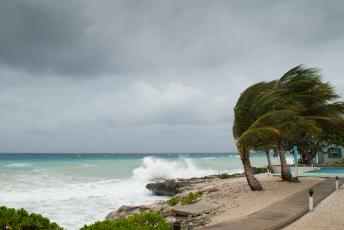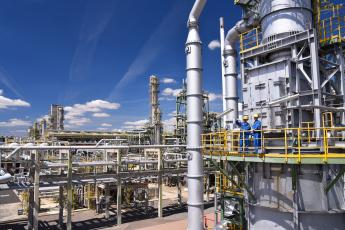All eyes are on Hurricane Ian, which is expected to approach Florida’s west coast later Wednesday and into Thursday bringing high winds and massive amounts of rain. Although our nation’s refiners and petrochemical manufacturers do not have facilities in the affected region, we’d like to urge the people in the area to prepare for the storm and heed all evacuation notices. Florida residents can get critical preparedness and evacuation information here.
In addition, our nation’s refiners and petrochemical manufacturers have developed robust preparedness measures that can be taken in the event of a hurricane or extreme weather event, click here for AFPM’s hurricane preparedness resources.
We will be closely watching this event and will work to aid in any disruptions that may occur in the region’s fuel supply following the storm, as well as aid in community recovery efforts.
Below are answers to some common questions about how our industries prepare for, and respond to, hurricanes and weather events.
Q: How do refineries and petrochemical manufacturers prepare for hurricane season?
A: AFPM member companies work throughout the year with federal, state and local first responders to review and further refine their detailed hurricane preparedness and response plans and to practice those plans using drills and exercises to ensure employees and facilities are ready for unexpected events. These companies also work closely with state and federal government agencies, including the Department of Homeland Security, Department of Energy, the U.S. Coast Guard, the Federal Emergency Management Agency (FEMA), Department of Transportation including Pipelines and Hazardous Materials Safety Administration, and state energy offices to share information and coordinate response efforts.
Fuel and petrochemical manufacturers invest heavily in preventative measures and regularly update their response and recovery plans and review risk assessments to apply learnings from previous weather events to their facilities.
AFPM and our members also provide websites with links to a suite of government materials and information, including an emergency supply checklist, contact information for emergency management agencies across the country, and flood safety information for the public to access at any time.
Q: Do gasoline prices go up after major storms?
A: Sometimes. The fuel supply chain that moves gasoline, diesel and other fuels from the refinery gate to the gas pump at your local retail outlet, is long and complex. Hurricanes and other natural disasters can disrupt this supply chain at many spots – refineries, pipelines, ports, rail lines, roads, storage terminals – and can disrupt the supply of electricity that is essential. These disruptions can affect the supply of fuel, and restrictions on supply can affect prices. However, the U.S. fuel supply chain is resilient and responsive, and any price impacts are generally short in duration.
Q: What protections are in place to prevent price gouging?
A: To protect consumers, many states have enacted price gouging laws that limit a merchant’s ability to raise prices during an emergency. There is wide variability in state price gouging laws, but typically a 10 – 25 percent increase in the price of an essential commodity compared to the price charged during the month prior to the emergency triggers scrutiny under the law.
Most state laws prohibiting price gouging focus on the following three factors: (1) a price deemed unfairly high; (2) an emergency situation; and (3) a product that is essential or useful in responding to the emergency. If you suspect price gouging report it to your state’s attorneys general office.
Q: How do refiners and petrochemical manufacturers support community recovery efforts?
A: Refiners and petrochemical manufacturers work day and night to help the members of their communities repair their homes and restore their lives. After past hurricanes, companies have set up call centers for employees to deploy post-hurricane assistance teams. They help colleagues and neighbors by cutting up fallen trees, pulling out moldy carpeting, wallboards and furniture from flooded homes, and many other acts of kindness and generosity to help them get back into their homes.
Refiners have also been known to set up barracks or rent blocks of hotel rooms to provide temporary housing for employees. They deploy fuel trucks fitted with special nozzles to bring fuel where it’s needed, going directly to vehicles so workers can get back and forth to work and emergency responders can keep moving to restore communities.
They stock warehouses with food, water, baby and pet supplies, and generators and tools needed for recovery work. Some have sent convoys of dozens of trucks filled with everyday necessities to help people in affected areas.
In addition to donating millions of dollars to the Red Cross and other humanitarian organizations, AFPM member companies respond with aid in countless ways, including:
- Coordinating directly with FEMA and other government agencies
- Working with city officials and using company engineers’ expertise to build pipelines and install pumps to restore municipal water supply to homes
- Pumping water out of flooded neighborhoods
- Underwriting medical expenses
- Coordinating rental vehicles for employees whose vehicles were damaged/lost
- Deploying company maintenance crews to employee homes to tackle clean-up and repairs
- Bringing trucks filled with supplies to affected areas
Click here for AFPM’s hurricane preparedness resources, as well as a video featuring AFPM President and CEO Chet Thompson and member companies discussing action taken around past weather events.


